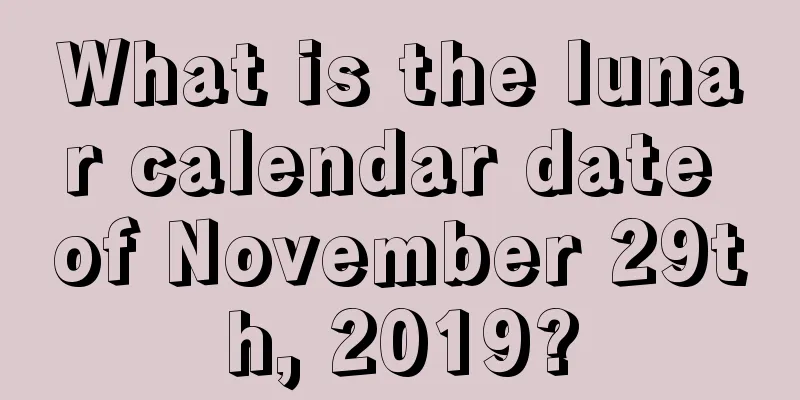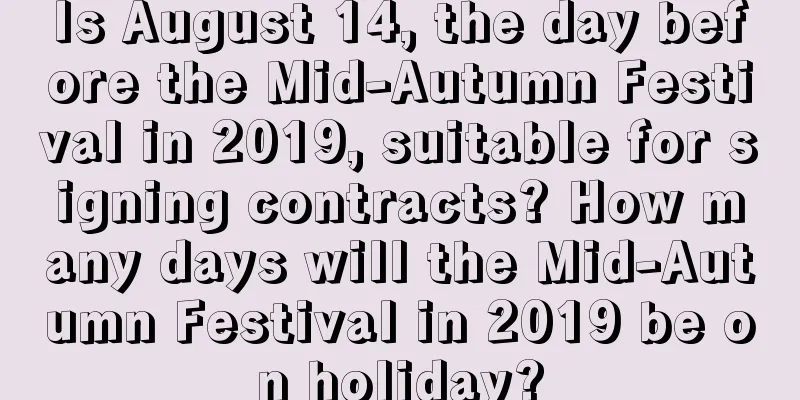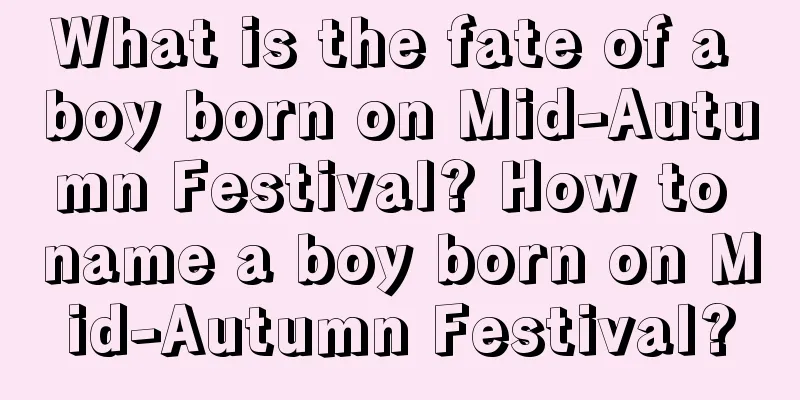What are the New Year’s Day customs? Introduction to New Year's Day customs

New Year's Day is the first day of the new year in the Gregorian calendar. "Yuan" means "first" and "Dan" means "day". "New Year's Day" means "first day", so what are the customs of New Year's Day? Introduction to New Year’s Day customs.What are the New Year’s Day customs? Introduction to New Year's Day customsThe customs of New Year's Day are to light firecrackers, change peach charms, drink Tusu wine, stay up all night to predict the coming year, and have fun and enjoy lanterns.In ancient China, all dynasties would hold celebrations, ceremonies and prayer activities on New Year's Day, such as offering sacrifices to gods and ancestors, writing couplets and hanging spring festival couplets, writing the word "Fu", and dancing with dragon lanterns. The people also gradually formed entertainment and celebration activities such as offering sacrifices to gods and ancestors, pasting spring festival couplets, setting off firecrackers, staying up all night, eating reunion dinners, and numerous "community fire shows". The New Year's Day diet in ancient China was also quite rich and colorful. The "Jingchu Sui Shi Ji" recorded that in the Southern Dynasties, after the New Year's Day greetings in Jingchu, people would drink pepper and cypress wine, peach soup, Tusu wine, gum candy, a five-spice plate, Fu Yu powder, take Quegui pills, and eat an egg each. Among them are peach soup drinks, food, and medicine, all of which have their own special meanings. New Year's Day customs in the north The weather in northern my country is cold in winter, with short days and long nights. Starting from New Year's Day, people who are not busy on the farm would slaughter pigs and sheep, sit cross-legged on the earthen kang, and chat about family matters. They would not work or go out, and the process would end on the fifteenth day of the first lunar month. Children in Beijing eat candied haws during the New Year, which symbolizes a prosperous new year. On New Year's Day, students in Shandong burn incense and worship the statue of Confucius in the hope of getting their names on the imperial examinations next year. New Year's Day customs in the south In the Jiangsu and Zhejiang areas, bamboo poles are tied to grass and set on fire during New Year's Day, which is called "celebrating the silkworms in the fields." On New Year's Day in Shaoxing, guests are entertained with "tea bowl tea", and some people also put olives and kumquats in it, which is called "holding ingots". In Fujian, the Minnan pronunciation of "spring" and "leftover" is the same. When eating on New Year's Day, people put flowers made of red paper on the rice, which is commonly known as "spring rice". Spring dinner is a symbol of "abundance every year". In Guangdong, when paying New Year’s greetings on New Year’s Day, the elders will give red envelopes or tangerines to the younger generations as rewards, which is also a symbol of good luck and surplus in the coming year. |
Recommend
What is the zodiac sign for people born in the year of Xiaonian in 2018? Does the child have a good personality?
Constellations are one of the Western numerology c...
Is it a good idea to move house on the 11th day of the first lunar month in 2021? What are the auspicious days for moving in the first month of 2021?
The first lunar month of 2021, the Year of the Ox,...
Is it good luck for people born in the winter solstice of the Monkey sign? Monkey Horoscope Analysis
In the worst possible situation, there is a chance...
Can I travel on the ninth day of the ninth lunar month in 2018? What are the predictions for good or bad luck?
In many places, people travel on meaningful days s...
Is the Shangsi Festival on March 3, 2019 a suitable date for marriage? How to choose an auspicious date for marriage?
Introduction: Getting married is also one of the i...
The 15th day of the seventh lunar month in 2018 is a good day?
Every day has good and bad days, auspicious and i...
Is it a good day to hold sacrifices on the third day of the fifth lunar month in 2019? Analysis of the good and bad luck at different hours today!
Introduction: Sacrifice is an important matter, an...
What does the Double Ninth Festival represent? What is the special meaning of Double Ninth Festival?
Different festivals have different meanings. So, l...
Is Laba Festival on the eighth day of the twelfth lunar month in 2019 suitable for moving?
Is Laba Festival on the eighth day of the twelfth...
The lunar calendar for February 26th, 2020, Year of the Rat, analysis of the lunar calendar date!
The almanac can not only reflect the date (solar ...
Is it a good idea to get married on June 21, 2019, the summer solstice? Is it auspicious to hold a wedding banquet on the summer solstice of 2019?
Introduction: Weddings are usually arranged on aus...
Can I get married during the Mid-Autumn Festival in 2020? What day is the Mid-Autumn Festival in the lunar calendar?
Can I get married during the Mid-Autumn Festival i...
Is the fifth day of the eighth lunar month in 2018 a good day? Is it a suitable day for a haircut?
Introduction: In Chinese tradition, haircuts somet...
Is it suitable to get a haircut on November 17th of the lunar calendar in 2019? Is it okay to get a haircut?
Is it suitable to get a haircut on November 17th o...
What is the fate of a boy born on May 14th of the lunar calendar in 2018?
A person's life is actually determined at the ...









